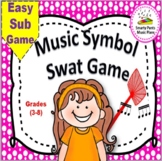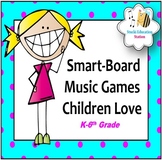6 Strategies Teaching Your Chorus Class New Sheet Music!
Welcome back teachers!
Today I'll be talking about chorus class. You can introduce new music to your choir by teaching it in a way that is engaging and fun. This requires a lot of planning. Here are some tips to help your choir learn a new song for chorus class.
Focus On New Music First
Introduce a new song right after warm-ups at the beginning of the rehearsal. Singers will be fresh and more focused to tackle new repertoire at the beginning of your class
Start With the Chorus Section
Starting with unison sections or the chorus section in the music involves everyone singing together right away. The chorus is repeated throughout the music. This way the singers feel like they're accomplishing something early in the rehearsal.
Keep Everyone Involved
Teaching several vocal parts all at once in a new song can be challenging. The rehearsal can quickly fall apart if you are working on a vocal part for one section and leaving the other sections without anything to do. I like to use the divide and conquer rule. As you are working with one section, keep the rest of the choir busy by giving them an assignment. Have them begin to learn the music on their own by using inner singing work (silently humming their parts inside their heads). They can do this by silently using the Curwen Kodaly hand signs to learn their pitches in the music. Just give them their starting pitch and you magically have everyone working on different parts at the same time.
Use Movement
Students learn better if you add movement to the tricky parts of a melody. Don't just tell the class to hold out a musical phrase longer or smoother. Instead, have them slowly wave their arm from one side of their body to the other side of their body to form an arch. Now have them slowly move their arm to form an arch and sing the musical phrase at the same time. They will instantly perform the music with smoother phrasing. Adding movement will also help keep the class more focused on singing and help maintain interest in learning new music.
Ask A Question
Get your singers involved by asking questions; don't just give them all the answers. Questions such as: Do we need to use more dynamics? Is the melody or the harmony more important? This will get them taking a more active role in understanding how the piece comes together and what can improve it.
Point Out the Short Cuts
Save rehearsal time by pointing out repetitions, similarities and repeated lyrics in the music. This keeps things moving forward in the rehearsal by quickly reviewing all the repeated parts throughout the music. Don't forget to have fun by celebrating their efforts and learning.
Thanks for stopping by today. I'd love to hear from you about how you tackle new repertoire with your choir. Sherry Stucki
be sure to Sign-up by email on my side bar to claim a monthly freebie, teacher tips & tricks. I would love to hear thoughts you might have in the comments below. Sherry :)
Check out some of my favorite games and activities!
You can contact me via email: sherrystucki@aim.com









